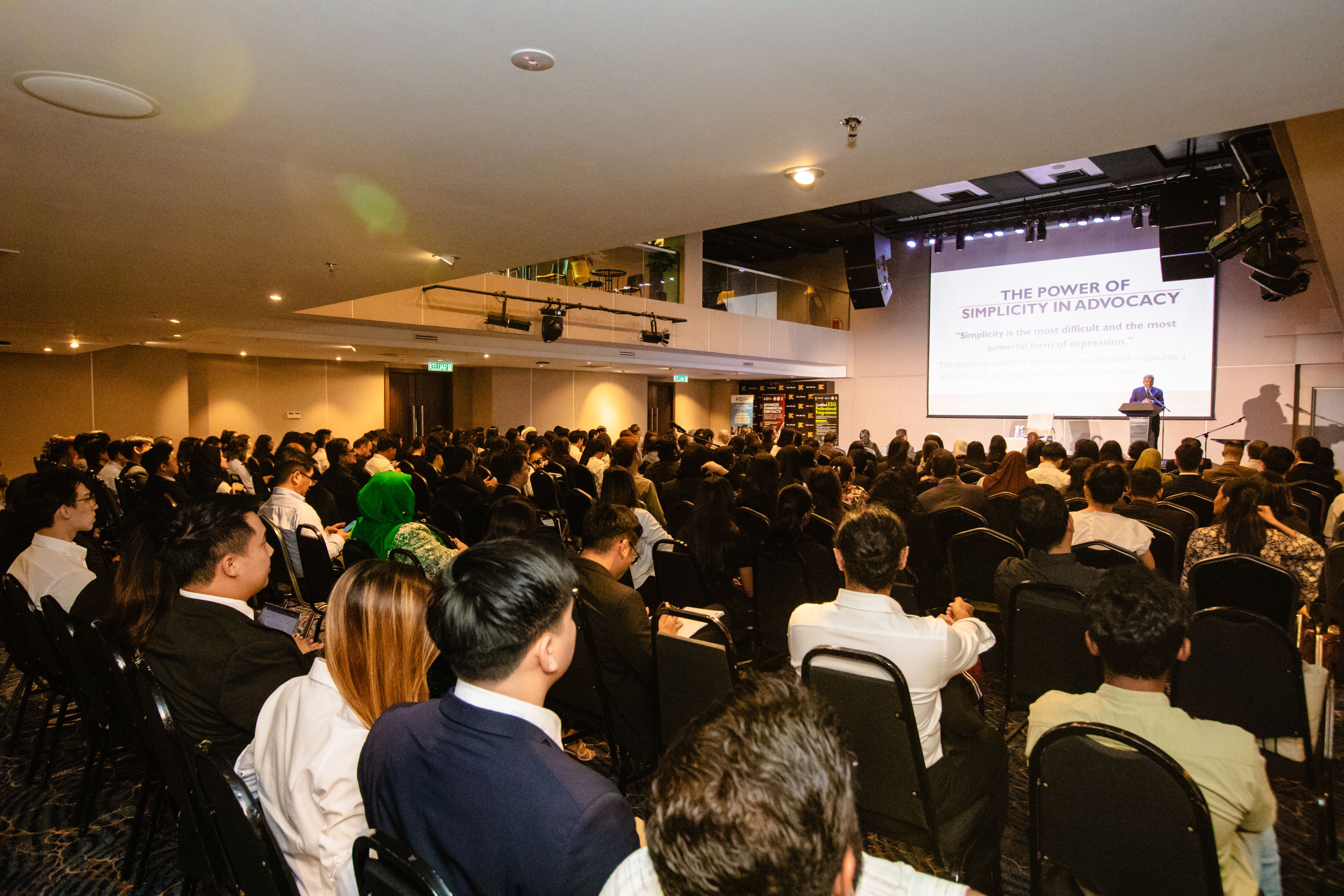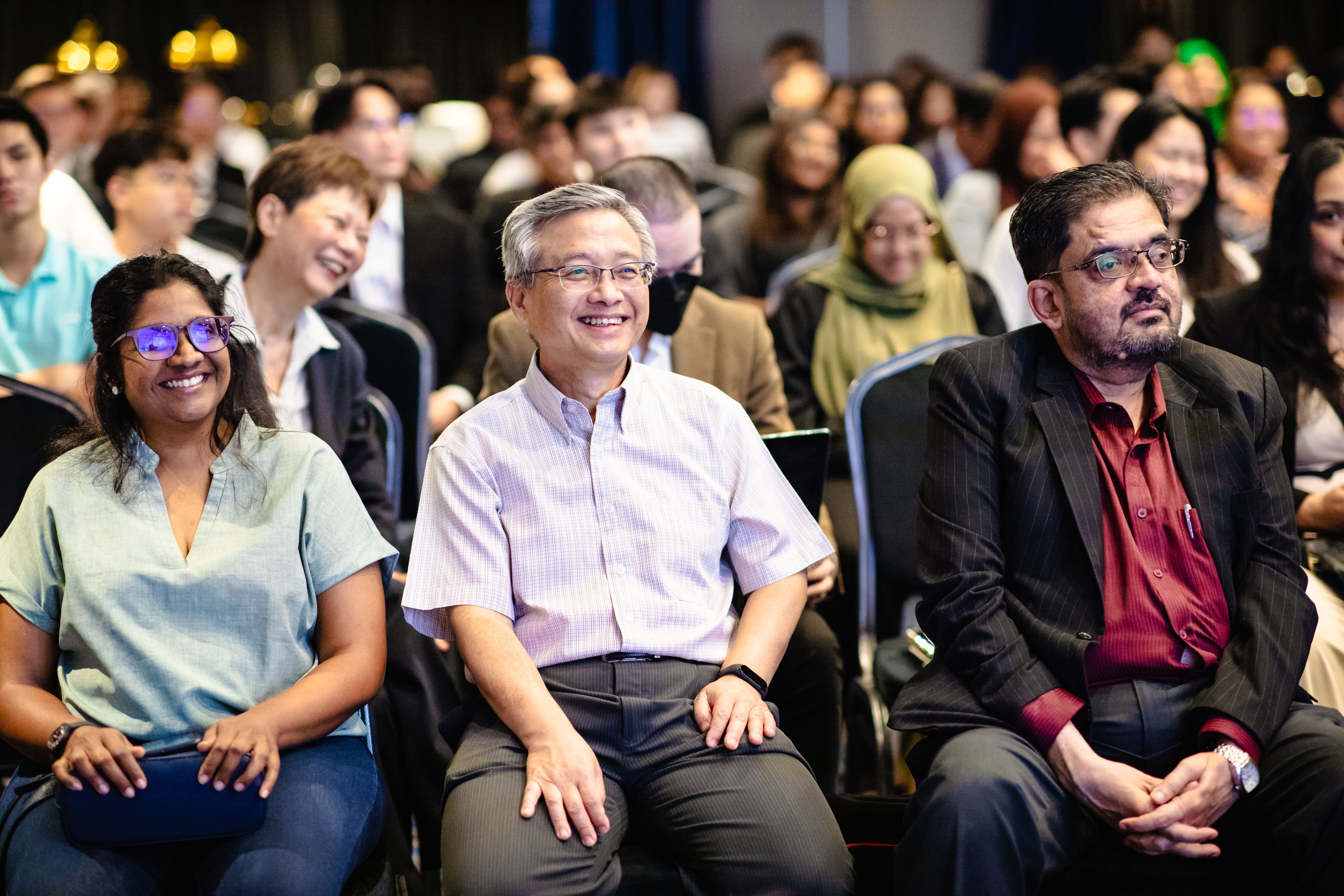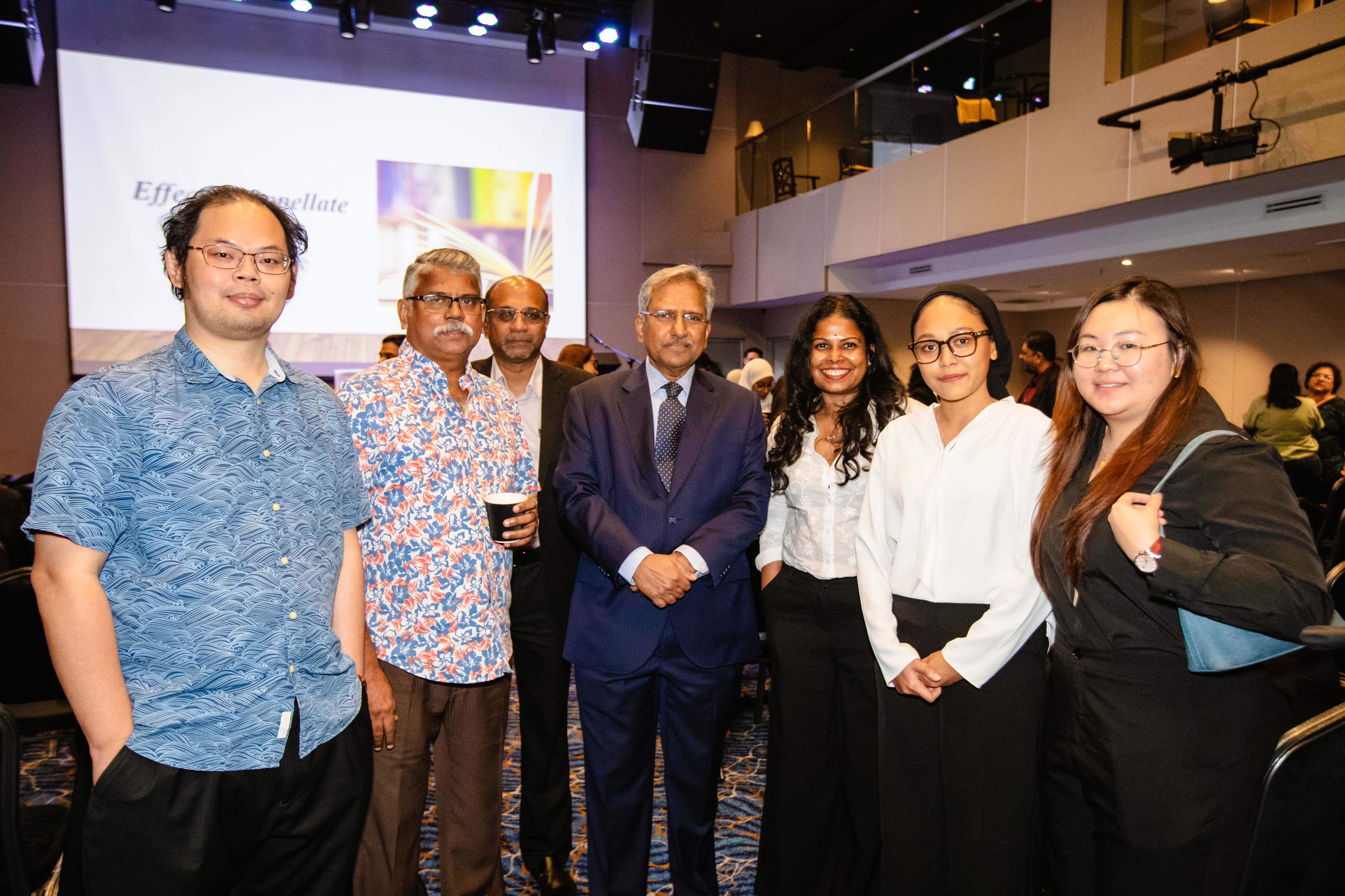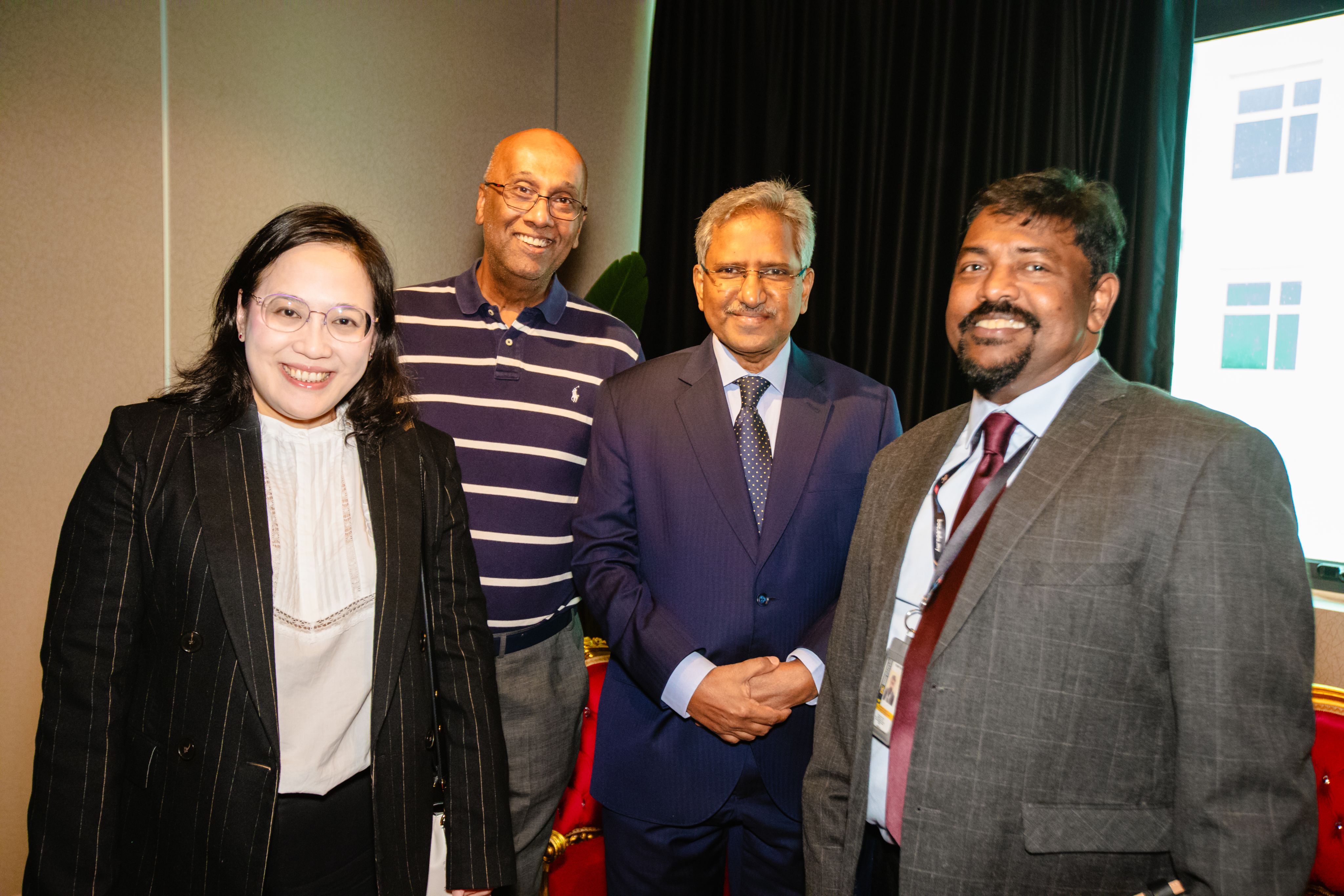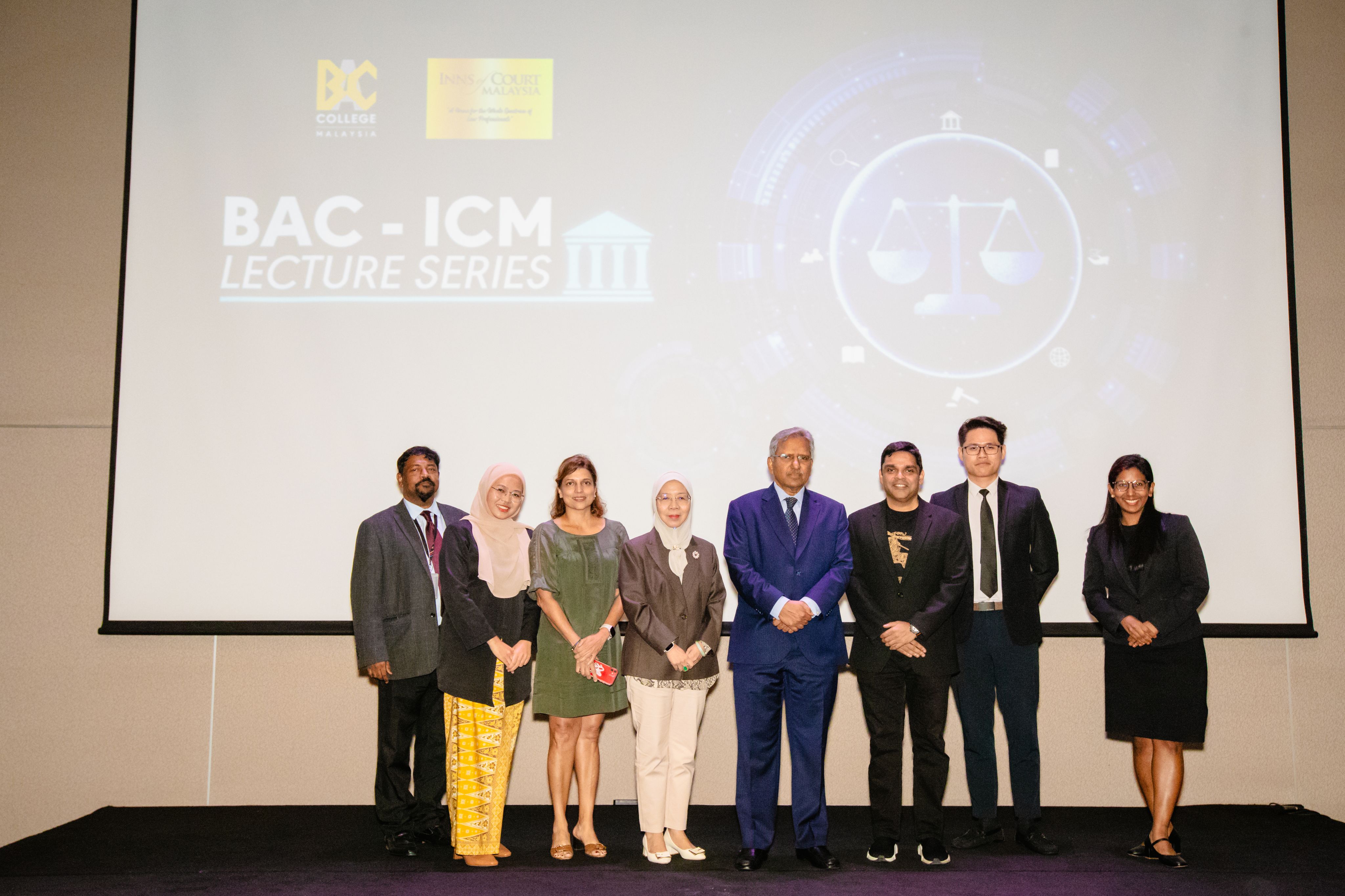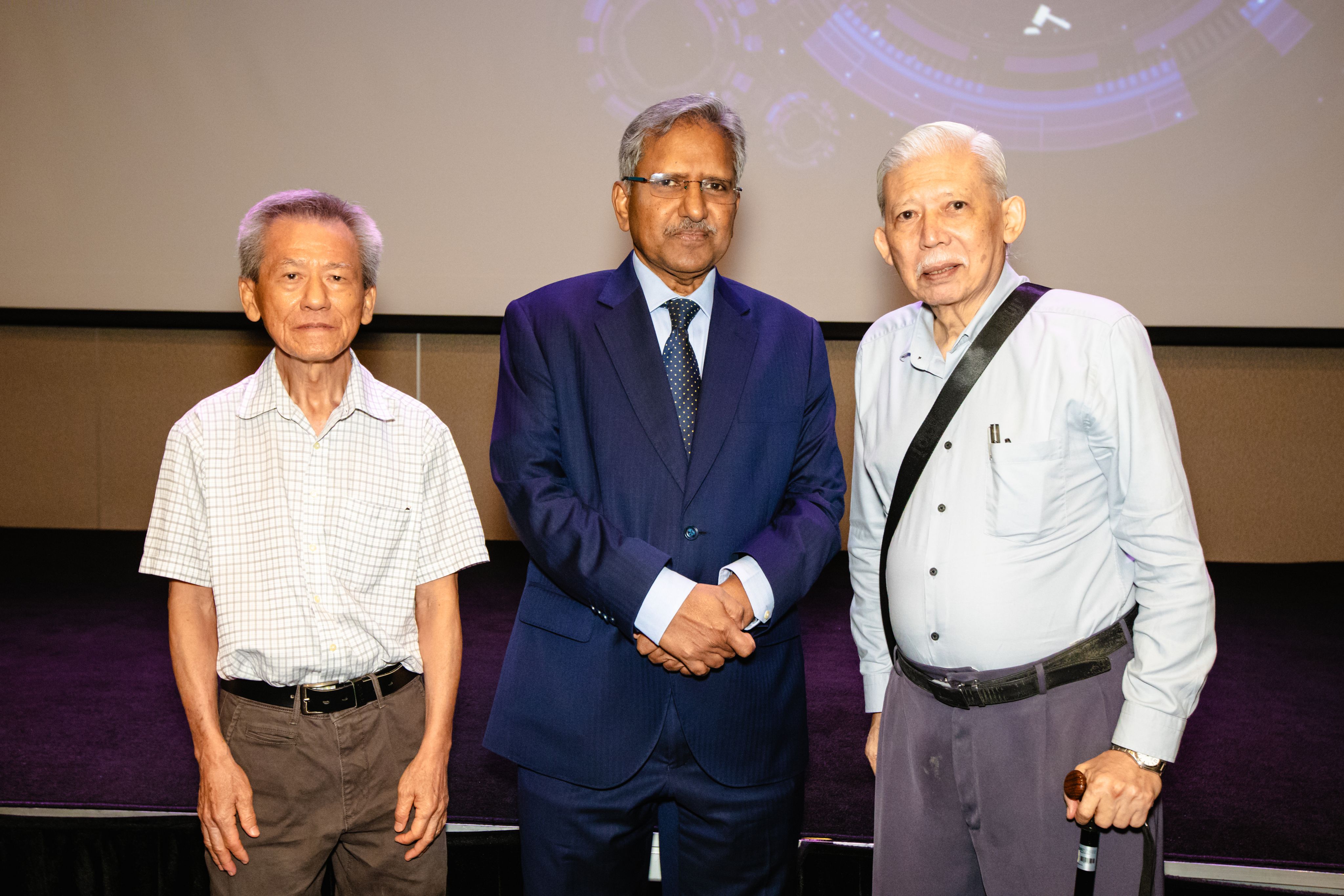BAC-ICM Lecture Series
The Hon. Justice Nantha Balan on
the Power of Clear, Honest Advocacy

On 24th July 2025, the fifth BAC-ICM Lecture Series presented an insightful and enriching exploration of courtroom advocacy by the Hon. Justice Datuk S. Nantha Balan, Judge of the Court of Appeal. His lecture, “Effective Use of Oral and Written Advocacy in Trials and Appeals,” might sound textbook on paper, but in person, it was anything but.
From the moment Justice Nantha Balan stepped up to speak, he brought the courtroom into the room, not in formality, but in lived experience. With the calm authority of someone who has spent decades dissecting arguments and delivering judgments, he wove together practical wisdom, sharp insight, and courtroom anecdotes into an engaging and enlightening talk.
For the young advocates and students in attendance, it was a rare glimpse behind the curtain. Here was not just theory, but experience, raw and real, from the Bench.
Justice Nantha Balan didn’t just speak about advocacy, but he showed us why it matters. He broke down the different dimensions of advocacy - trial advocacy, appellate advocacy, and the pivotal role of written submissions. His message was clear: no matter how sharp your oral arguments may be, your written submissions are often what carry the day.
The takeaway? A compelling submission isn’t just paperwork. It’s your voice when you’re not in the room.
“In appellate courts, judges usually read your submissions on their own time, without you there to explain or elaborate. If your writing doesn’t do the job, your argument fails before you even enter the courtroom.”
“Simplicity enhances credibility. When you express your argument clearly, you show that you understand it well, and that you respect the judge’s time and workload.”
Simplicity is Power
Throughout his talk, Justice Nantha Balan returned to a core principle: simplicity. Channeling the clarity of legal legend Lord Denning, he emphasised that the best advocacy isn’t buried in jargon or decorative prose. It’s straightforward, clean, and intentional.
The judge didn’t shy away from the realities of the legal profession. Judges, he reminded us, are swamped with cases and strapped for time. The advocates who rise above the rest are those who can prioritize, focus, and present arguments without fluff.
Advocacy Is Learned, Not Born
Dispelling the myth of the “born advocate,” Justice Nantha Balan offered a refreshing perspective. Advocacy, he stressed, is a skill, one that can be learned, refined, and mastered. Whether you’re preparing a persuasive submission or delivering an oral argument in court, it’s all about preparation, precision, and a deep understanding of your audience.
He also touched on an increasingly relevant topic in modern law: artificial intelligence. Is it a friend or foe in legal practice? While he didn’t offer a definitive answer, he did encourage future advocates to think critically about AI’s impact, especially when it comes to generating or reviewing written submissions.
“It’s not about being theatrical. It’s about being effective.”
The Unspoken Language of the Courtroom
Justice Nantha Balan also emphasised that advocacy isn’t just about what you say. It’s how you carry yourself. Body language, tone, and courtroom decorum all play a role in how your arguments are received. A confident but respectful posture, steady eye contact, and calm delivery can often speak louder than the words themselves. Courtesy, he reminded the audience, is never outdated. Judges take notice of those who show respect, not just in their submissions, but in how they engage with the court and opposing counsel. He also touched on appearance, stressing that advocates should dress with intention. Crisp, professional attire signals that you take the proceedings seriously,” he continued. It’s not about fashion, but it’s about discipline, respect for the court, and pride in your role.
Justice Nantha Balan’s talk left the audience buzzing with thoughts, curiosity, and new perspectives. His presentation style was structured but never stiff. Engaging but never overbearing. It was exactly what good advocacy should be. Clear, purposeful, and persuasive. As the session ended, many attendees stayed behind, not just to ask questions, but to reflect and reframe how they approach their own legal writing and courtroom presence. The BAC-ICM Lecture Series continues to be a platform for legal minds to share, shape, and sharpen their craft, and Justice Nantha Balan’s lecture did more than that. It offered a mirror to every aspiring advocate in the room - showing them where they are, where they could go, and most importantly, how to get there.
In a legal world increasingly filled with noise, his message was refreshingly clear:
Be simple. Be structured. Be sincere.
And that might just be the best advocacy lesson of all.


